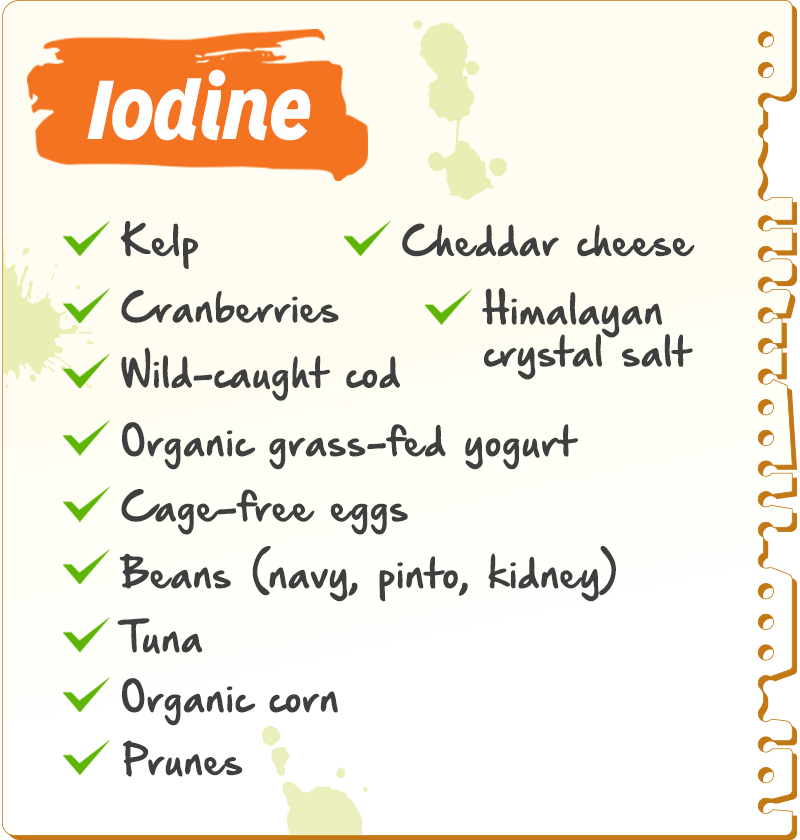Iodine
The essential mineral iodine is critical to the production of thyroid hormones, which are the hormones that regulate growth and development. Iodine deficiency in pregnancy is the world’s greatest single cause of preventable brain damage. As consumption of processed foods has increased, so have the levels of iodine deficiency. Roughly 99% of the salt used in processed foods is not iodized.
Fast Fact: Approximately one-third of pregnant women in the U.S. are at least mildly deficient in iodine.
Why You Need It: Thyroid hormones, and therefore iodine, are critical in bone, nerve and brain development from pregnancy through infancy. Thyroid hormones play a crucial role in regulating metabolism, maintaining body temperature, and cellular growth and differentiation. Iodine deficiency during pregnancy can lead to impairments in the unborn baby’s motor skill and cognitive functions, with the worst cases resulting in mental retardation and irreversible brain damage. A higher incidence of ADHD and lower IQ levels are associated with even a mild deficiency in pregnancy.
Iodine deficiency can lead to hypothyroidism (as indicated by fatigue, weakness, weight gain or difficulty in losing weight, dry skin and hair, irritability, depression, low libido, among other possible symptoms), and enlargement of the thyroid gland (goiter). Studies show iodine improves the antiviral defenses in our lungs. In several studies, supplemental iodine has been shown to be beneficial in treating fibrocystic breast disease. Iodine may have a role in breast and stomach cancer prevention.

× ![]()
Best Food Sources: Sea vegetables offer highly concentrated, highly bioavailable sources. Kelp is tops, with kombu, hiziki, arami, dulse, nori and wakame offering lower amounts. Other food sources include cranberries, wild-caught cod, organic grass-fed (ideally raw) yogurt, raw milk, cage-free eggs, beans (navy, pinto, kidney), tuna, organic corn, prunes, and cheddar cheese. A natural unrefined salt, such as pink Himalayan salt, is preferable to iodized table salt. Iodine levels are the highest in food farmed in coastal soils.
Supplement Suggestions: A high quality multivitamin is the best choice. Supplements typically contain sodium iodide or the highly bioavailable potassium iodide. Maintaining sufficient iodine levels is particularly important during pregnancy and breastfeeding. As with all supplements, consult your health care practitioner on what’s best for you.
Need to Know: When you ingest or absorb bromine (found in baked goods, medications, pesticides, plastics, and soft drinks) it displaces iodine.
Check out our food and supplement shopping tips.